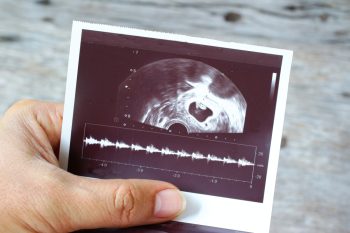Being pregnant is one of the most exciting experiences any woman can have. You’re always eager to see your baby grow, and every little change is a reason for joy. However, sometimes things don’t work out as planned.
A non-viable pregnancy ultrasound is a crucial tool to detect non-viable pregnancy early, monitor the progress of a viable one, and help you make informed decisions about your pregnancy’s future.
In this post, we’ll dive deep into non-viable pregnancy ultrasound and give you all the information you need to know.
What is non-viable pregnancy?
Non-viable pregnancy happens when the fetus isn’t developing as it should or when there’s no heartbeat detected.
It’s a heartbreaking reality that affects one in five pregnancies. Non-viable pregnancies can be caused by various factors such as genetic abnormalities, infection, hormone imbalances, or other medical conditions.
If your doctor suspects a non-viable pregnancy, an ultrasound scan is often done to confirm the diagnosis.

How is non-viable pregnancy detected through ultrasound?
Ultrasound is an imaging test that uses sound waves to create images of the inside of your body.
During an ultrasound for non-viable pregnancy, the doctor will look for a gestational sac and embryo, and measure the size of the sac and embryo.
They can also check for a fetal heartbeat. If there’s no heartbeat, a follow-up ultrasound will be done within a week to confirm the diagnosis.

What happens after a non-viable pregnancy diagnosis?
Finding out that you have a non-viable pregnancy can be devastating and emotionally overwhelming.
Your doctor will discuss your options with you, and these depend on how far along you were in your pregnancy, your medical history, and any complications.
Options may include waiting for natural miscarriage, medication to induce miscarriage, or surgical intervention. Your doctor will guide you through the process and provide you with emotional support.

How can ultrasound help detect viable pregnancy?
Ultrasound is also used to detect viable pregnancy and monitor the growth of your baby. A viable pregnancy is one in which the fetus is developing, and a heartbeat is detected.
Ultrasound scans are often done in early pregnancy to confirm viability, estimate due date, and rule out complications such as ectopic pregnancy.
Later in pregnancy, ultrasound is used to monitor your baby’s growth, position, and check their overall health.
Non-viable pregnancy is a reality that no woman wants to face, but it’s essential to be informed about it.

Ultrasound is a vital tool in detecting non-viable pregnancy, and it can also help you monitor viable pregnancy and make informed decisions about your pregnancy’s future.
Remember, if you’re experiencing any symptoms or concerned about your pregnancy, don’t hesitate to speak to your doctor.
They’re there to provide you with the medical, emotional support you need. Stay positive, and take it one step at a time.


